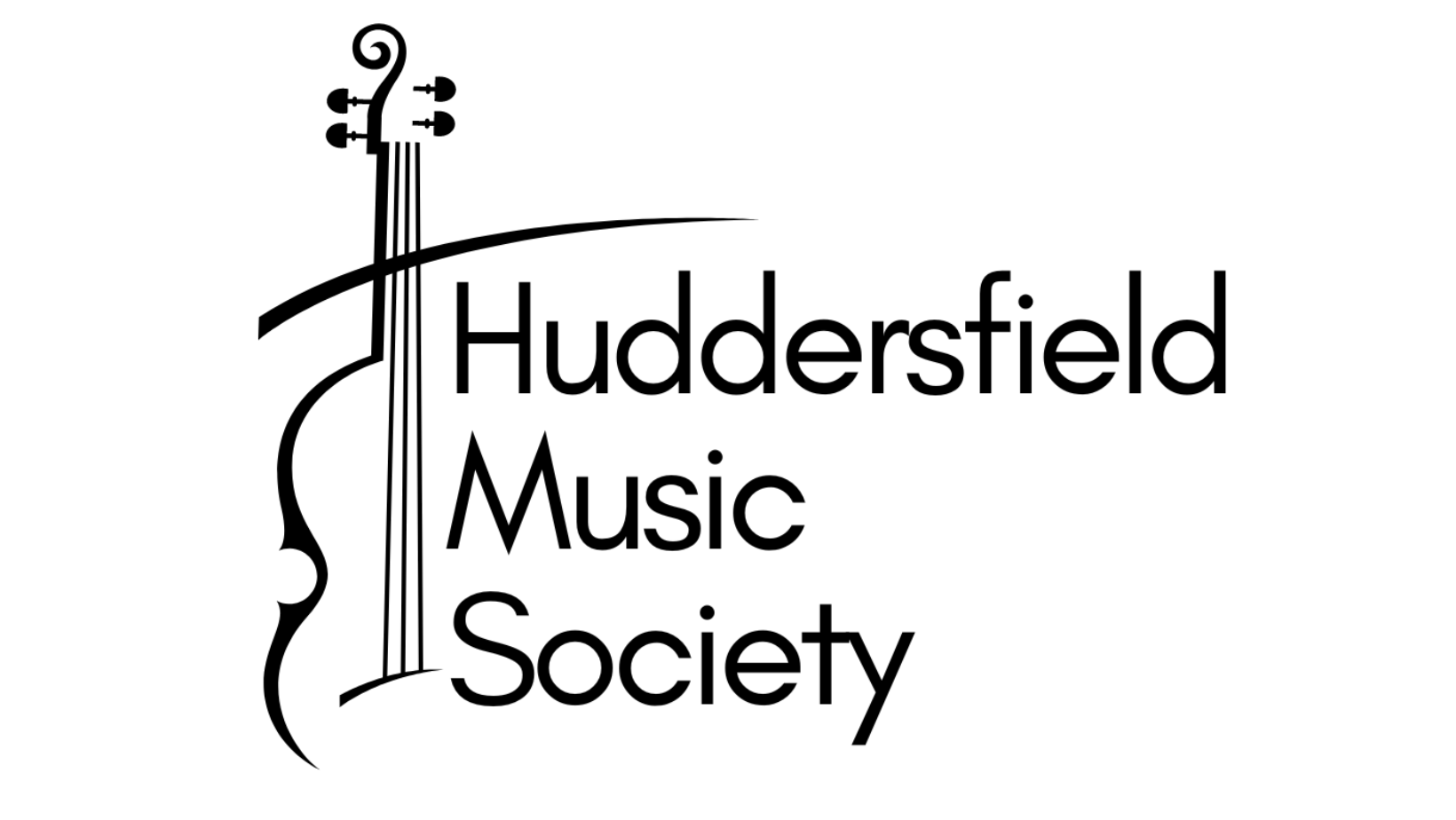Artists who have performed for us in the past include:
Pablo Casals, Solomon,
Paul Robeson, Myra Hess,
Paul Tortelier, Amadeus String Quartet,
Peter Pears and Benjamin Britten,
Kathleen Ferrier,
Emma Kirkby and the Rose Consort of Viols,
Angela Hewitt, Carducci String Quartet, Benjamin Grosvenor
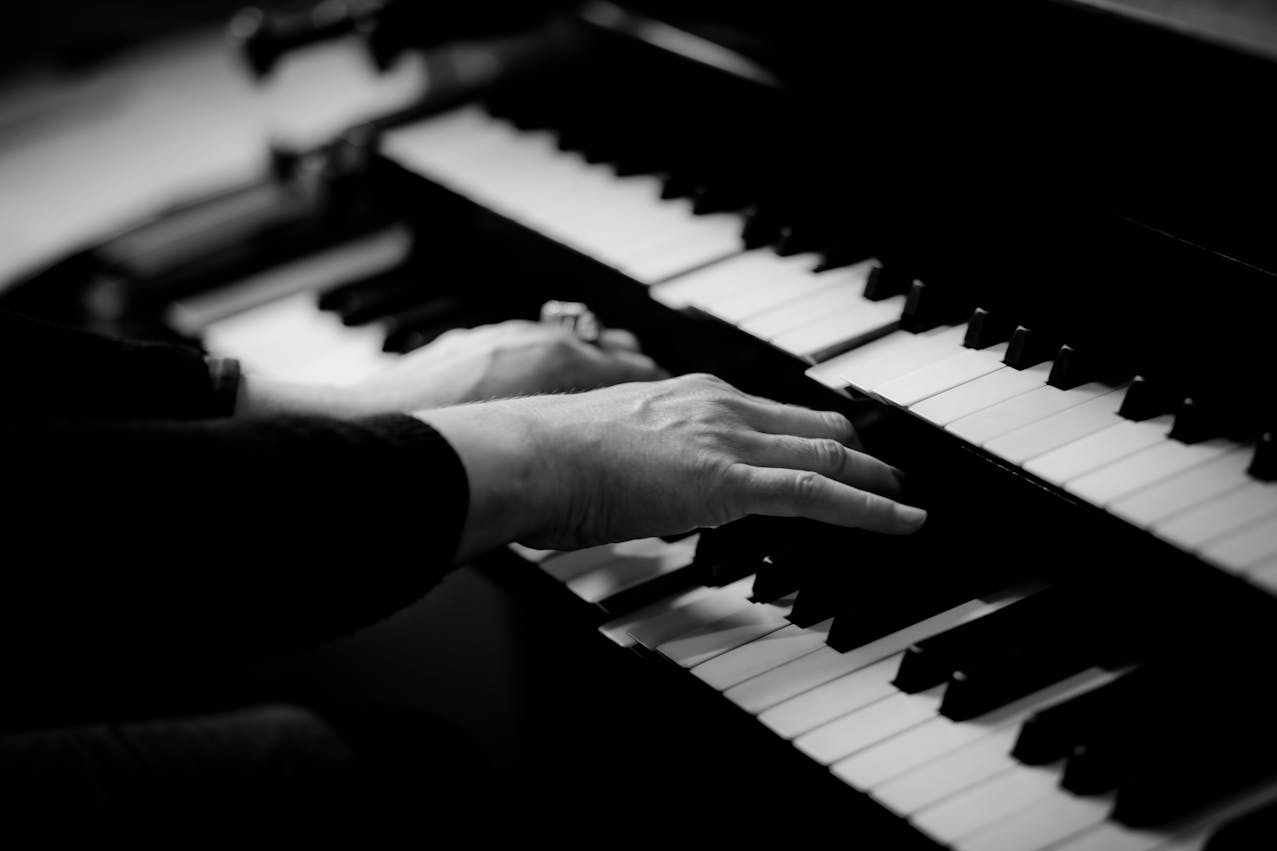
Huddersfield Music Society History
Founded in 1918 by Arthur Eaglefield Hull, the Huddersfield Music Society has been promoting live concerts by professional artists for over a century.
Dr Hull was a notable musician and musicologist. He founded the British Music Society (of which the Huddersfield Music Club was an original member), also the School of Music in Huddersfield, forerunner to the University Music Department. He was organist at Huddersfield Parish Church from 1904 to 1920, wrote and edited many compilations of organ music and contributed to many other scholarly works. In 1927 it was claimed that material in one of his publications had been plagiarised; whether this was actually so, or was a failure to cite references is unknown, but the resultant criticism undoubtedly affected him deeply. In September 1928 he fell under a train at Huddersfield Railway Station and died of his injuries on November 4th, aged 52. He was survived by his wife Constance and their niece and nephew whom they had adopted after the death of his brother, William.
Following his death the Club’s minutes record that condolences were sent to Mrs Hull. She was also invited to serve on the committee, a position that she held for almost forty years; during this tenure she was president from 1958 until her death, aged 86 in 1967.
Over a period of nearly a century musical tastes have inevitably changed and evolved. The early concerts, by comparison with today, seem to be extremely long. The very first concert, by the Russian tenor Vladimir Rosing contained nineteen separate songs; The English Singers often performed well over twenty five items per concert, many of which were repeats from performances in only the previous season. In 1934 Egon Petri gave a recital that included the Mozart Piano Sonata K331, the Goldberg Variations, Beethoven Piano Sonata Op 110 plus four other (not insubstantial) items! Solomon in 1945 played twelve pieces including the Appassionata Sonata and Brahms’ Handel Variations.
To their credit, in the formative years, the committee was not shy of scheduling contemporary pieces. Works such as the Bartók and Dohnányi String Quartets were played in Huddersfield within a few weeks of their premieres in London. However a programme note in 1925 from Dr Hull explains: ‘it may interest Club members to know of the care taken by the committee with the programmes; for instance, the second [Bartók] quartet was decided for this programme, but after some recent experiences in London of the reception of this extreme piece, a cable was sent to Budapest, asking for the substitution of the first quartet which represents Bartók’s intermediate style’.1 It was in fact 1953 before the second quartet was played for the first time, by the Vegh Quartet, and it has only been played twice since. In November 1927 Jelly d’Aranyi and Myra Hess played the Ravel Violin Sonata; it had been premiered by them in London only three weeks earlier. Respighi’s Quartet in the Dorian Mode was dedicated to the Lener Quartet; it was premiered on October 29th 1924 in London, then played in Huddersfield on November 12th for only the third time.
At the outbreak of the Second World War all places of entertainment were closed by the government but it was soon realised that the war effort would benefit if people’s morale was kept up.2 The Music Club therefore maintained a full programme of concerts, although they were generally held on Saturday afternoons. In those days the Club had a Ladies’ Committee whose raison d’etre was to raise money to support the Club in times of crisis. Headed by Mrs Hull, it promoted four seasons from the artists still available, including six concerts by the Hallé Orchestra, conducted by Laurance Turner in the Town Hall. Sir Clifford Curzon made his first appearance for the Club playing the Beethoven Piano Concerto No 4 with them in 1941. St Patrick’s Hall was the venue for the regular concerts ‘by permission of the Military Authorities’ and although most programmes were performed as scheduled, the Blech Quartet had to be replaced ‘owing to war service’. Troops were admitted free to all recitals and some artists such as the Griller Quartet and William Pleeth performed in uniform. Isobel Baillie, Eileen Joyce, Cyril Smith, Myra Hess, Kathleen Ferrier and Solomon also gave concerts; Louis Kentner however was the most favoured artist appearing in four consecutive seasons.
Just as happens today many performers were engaged at the beginning of their careers. The Amadeus String Quartet first played in Huddersfield in 1949 when they were all in their early twenties; they appeared a further five times during the next ten years after which their fees became prohibitive. Budgets have always been tight: Artur Rubinstein was engaged in 1929, but only once before his fees became exorbitant; similarly Paul Robeson who came in March 1930 after his success in Showboat but before he could command higher fees playing Shakespeare’s Othello at the Savoy Theatre. John Ogdon was engaged in 1962, only weeks prior to becoming the joint first prize winner of the prestigious Moscow Tchaikovsky Competition. In recent years the Leeds International Pianoforte Competition has identified many excellent young pianists who have been subsequently engaged, including Peter Donohoe, Artur Pizarro, Jean Efflam–Bavouzet and Wolfgang Manz; promising artists are regularly engaged from the Royal Northern College of Music and through the Countess of Munster Scheme.
From the outset singers were an integral part of most seasons. In the 1920s Olga Haley gave two recitals, and although possibly not a household name today, she was a popular artiste in her time, singing at the Promenade Concerts and making recordings with HMV. Born and brought up in Huddersfield, it is possible that she was a student under Dr Hull at the College of Music. The most prestigious song recitals however were in 1945 and 1947 when Benjamin Britten and Peter Pears came to the Club. Among the various items that they performed were Schumann’s Dichterliebe and Britten’s Seven Sonnets of Michelangelo in their first concert and Britten’s The Holy Sonnets of John Donne and a number of his popular folk-song arrangements in the second. Forty years later Ian and Jennifer Partridge offered similar repertoire: their programmes contained Schubert’s Die Schöne Müllerin in 1980 and 1995 and Britten’s Winter Words in 1983. Singers of the highest calibre are still being engaged: John Mark Ainsley and Roderick Williams being two of the most recent.
In 1962 the title of Music Club was formally changed to The Huddersfield Music Society. It was proposed by the committee to ‘remove the suggestion of exclusiveness’. The minutes reveal that it was felt that the title of Club suggested a ‘closed shop’ and perceived formal proposals of membership. The new name was unanimously supported by the rest of the committee and has been used ever since.3
Instrumentalists too have played an essential part in the Society’s repertoire over the years. There have been recitals by (of those not mentioned elsewhere) the ‘cellists Pablo Casals, Paul Tortelier and Natalie Clein; violinists Ida Haendel, Ginette Neveu, and Arthur Grumiaux; harpists Marisa Robles and Osian Ellis; woodwind players Michael Collins and Leon Goossens and horn player Dennis Brain (only a matter of months before he tragically died in a car accident). Pianists are of course the most prolific as they are required as accompanists in much of the instrumental and song repertoire and also as artists in their own right. In the early years Dr and Mrs Hull (both FRCOs) accompanied solo singers; Cyril Scott, a personal friend of Dr Hull gave a number of solo recitals and also accompanied the mezzo Astra Desmond in a recital of all his own works. Ernest Lush came in 1949, a senior staff accompanist with the BBC, in this instance he was with the ‘cellist Pierre Fournier. Gerald Moore came on three occasions: with John Coates, Isobel Baillie and lastly in 1951 in a programme entitled ‘The Accompanist Speaks’. Moisewitsch, Walter Gieseking, Moriz Rosenthal, Wilhelm Backhaus, Shura Cherkassky, Stephen Bishop (Kovasevich) also have given recitals to great acclaim. In 1990 the Society was delighted to be able to use the University’s new Steinway D; subsequently Angela Hewitt, Imogen Cooper, Alexei Grynyuk and Paul Lewis have enjoyed playing on it and have given audiences exhilarating recitals. As a special treat in 1997 a matching Steinway was hired when Artur Pizarro and Stephen Coombs played a wonderful concert for two pianos, a first in Music Society history.
Many people would say that string quartets have been the bedrock of most seasons. The Caterall were the first in 1919, playing what was then a very contemporary programme of Elgar, Borodin and Ravel (this being the first performance at the Society of a quartet that has become the most played work in HMS history). The Czech String Quartet who played in 1920 was formed by the second violinist, Josef Suk. He, of course, was an eminent composer and the son-in-law of Dvorak. In 1927 the Flonzaley String Quartet, (regarded by many at that time as the leading quartet in the world) gave their final recital in Huddersfield before retiring. During the succeeding years the Music Society has enjoyed performances from eminent ensembles such as the New Budapest, Pražák, Ysaÿe and Takács String Quartets. The Lindsays first appeared in 1970 and gave eleven memorable concerts over thirty five years. Their final concert, an all Haydn programme was in March 2005 before they disbanded in July of the same year. Recently there have been notable performances from (among many) the Jerusalem, Carducci, Petersen, Atrium, Tokyo and Pavel Hass Quartets.
Early Music was initially only represented by composers of songs within very eclectic programmes: Morley, Weelkes, Arne, Purcell, Gibbons and of course the prolific Anon and Trad featured regularly. However, one of the first artists to be engaged who embraced the use of period instruments was Violet Gordon Woodhouse who appeared in 1922. A devotee of Dolmetsch, she was an early exponent of the harpsichord and clavichord. Sartorially flamboyant and beloved of the social set she became a professional in her forties and made the first ever recording of the harpsichord, for HMV.4 Since the war, when the early music movement rapidly gained momentum, many eminent groups have been engaged including The Academy of Ancient Music, Musica Antiqua of Koln, Florilegium and The Rose Consort of Viols with the acclaimed soprano, Emma Kirkby.
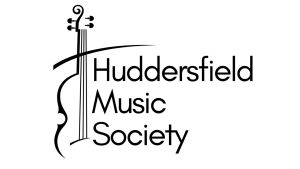
In October1950 the venue was changed to the Mayor’s Reception Room at the Town Hall, previously having been held in the Highfield Hall, New North Road and St Patrick’s Hall, Fitzwilliam Street. In 1952 the concert day was changed from Wednesday to Monday and the season was reduced from six concerts to five. This was maintained until December 1966 when a new policy was adopted – a sixth concert was to be given by the students of the Music Department of the (then) College of Technology. This continued until 1974 when the student concerts were discontinued but the season of six concerts remained until 1990 when a full season of seven concerts was established and has been maintained ever since. In 2011 the idea of student concerts was revived as one-off fund-raising events. These have been extremely successful and well supported, and although they will not be a regular feature, they could well be repeated in future seasons.
In 1979 dry-rot in the roof of the Town Hall forced the Society to seek other accommodation. Venn Street Arts Centre (which was demolished to make way for the Kingsgate Centre) was used until November 1983 when the first concert was held in the now permanent venue of the University’s St Paul’s Hall, with Janet Hilton on clarinet accompanied by Keith Swallow. There was a notable return however to a previous venue when in 1981 Huddersfield celebrated the centenary of the Town Hall and the Society was invited to participate. The Delme Ensemble including Jack Brymer on clarinet, and Adrian Beers on double bass played the Beethoven Septet and the Schubert Octet to a very enthusiastic audience. Similar ensembles have been engaged when monies have been available and the Society has enjoyed some very significant concerts such as The King’s Singers, Manchester Camerata, Domus and the Gould Piano Trio who have also been regular contributors, appearing six times to date. The brilliant Leopold String Trio, the dynamic Fujita Piano Trio (playing their complete programme from memory) and the percussionists O Duo have appeared recently and brought with them diverse programmes which have widened the repertoire of chamber music to the delight of the audience.
The 2017 – 2018 season marked the centenary of the Society. The artists chosen to celebrate this important milestone reflected successful concerts from the recent past including: Angela Hewitt, Michael Collins, Andrew Brownell, the Gould Piano Trio and the Pražák String Quartet. On 5th November 2018, almost 100 years to the day since the first concert was held (20th November 1918), the Society enjoyed a concert by the Bridge Quartet with the pianist Michael Dussek and tenor Charles Daniels. It was an all-English programme including On Wenlock Edge by Vaughan Williams, songs by Butterworth and Gurney and Elgar’s Piano Quintet.
After such historical celebration the Society moved into its second century with renewed enthusiasm. However, what the Second World War failed to stop, the Covid Pandemic succeeded in doing. Following Government guidelines and along with all other arts and music organizations, the 102nd season was brought to a peremptory halt in February 2020 with two concerts remaining. These were finally held in September and October 2021. The 103rd season commenced in November 2021, albeit again with many adaptations and rearrangements; however it concluded on a very positive note with the Mithras Piano Trio in April 2022. The audience remained very supportive throughout the pandemic ensuring that the Society can, once again, look ahead with confidence to resume promoting memorable concerts by renowned musicians and thus ensure its continuing success.
Hilary Norcliffe
Archivist
Revised May 2022
References
- HMS programme, 11.02.1925
- Haigh, B. and Gillooley, S. A Century of Huddersfield. Stroud: Sutton Publishing, 2000, p. 83
- Committee minutes, 02.06.1961
- Douglas-Home, J. Violet. London: The Harvill Press, 1996, p. 184

Dr Eaglefield Hull

Solomon
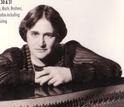
Myra Hess
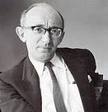
Clifford Curzon
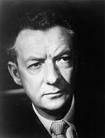
Benjamin Britten

Kathleen Ferrier
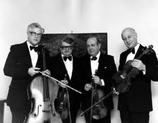
Amadeus String Quartet

Marisa Robles

Gould Piano Trio
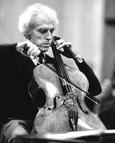
Paul Tortelier
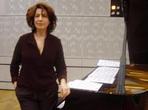
Imogen Cooper
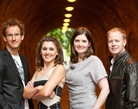
Carducci String Quartet
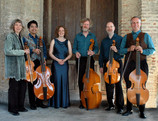
Rose Consort of Viols
